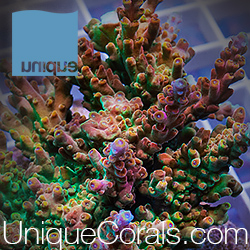Last Sunday, May 6th, members of SWAM ( Saltwater Aquarium Society of Maine) came over to my house to see my reef tank. It was a very enjoyable to time for everyone. There were a few things that came up in discussion that I thought I would here pass on to our readers.
The first thing that I did that surprised the SWAM folks was the way I feed my fish – I don’t feed my corals. I feed usually once a day. I turn off the main circulation pumps, so that food doesn’t go over the center overflow box and wind up in the sump, instead of the stomachs of my fish. They were especially surprised at the quantity of flake food that I feed. With 8 surgeonfish and 2 triggers – a Huma and Clown – flakes moving all over the reef tank helps to prevent inter and intra specific aggression. I have for a long time exclusively used the brand OSI marine flakes. It is the one type that is especially, in my experience, the one that the Achilles surgeonfish go after. I’ve even had butterflyfish eat this brand. My guess, and it is only a guess, is that its unusually strong smell triggers a feeding response in some of the more difficult to feed fish.
Note, there is in this issue an article, by Mark Evans about fish’s sense of smell.

The new tank is located in the basement, where I’m in
the process of building a wall around it; behind it will be the
300-gallon sump and associated equipment.
As you can see from both photographs, taken within minutes of one another, what my fish feeding looks like. The snow storm of OSI flakes disappears within minutes of introduction. It’s important to realize that my system holds 700-gallons of water and between the ETS downdraft skimmer and my ASM model 6 skimmer I skim about 4,000-gallon/hour. I have no doubt that there are other ways of feeding, but this is the way that works for me.
The other topic frequently discussed was the lengths I go to prevent Murphy (Murphy’s Law) from destroying my man made reef. This topic I’ll go into in some detail next month. Let me say now that there appears to an endless list of things that can go wrong in systems so dependent on electrical power. Potential electrical and plumbing problems have caused too many systems that I know of to crash. Reef keepers need to be able to anticipate problems before they occur, but anticipation comes from experience, but we will discuss that next month.











0 Comments